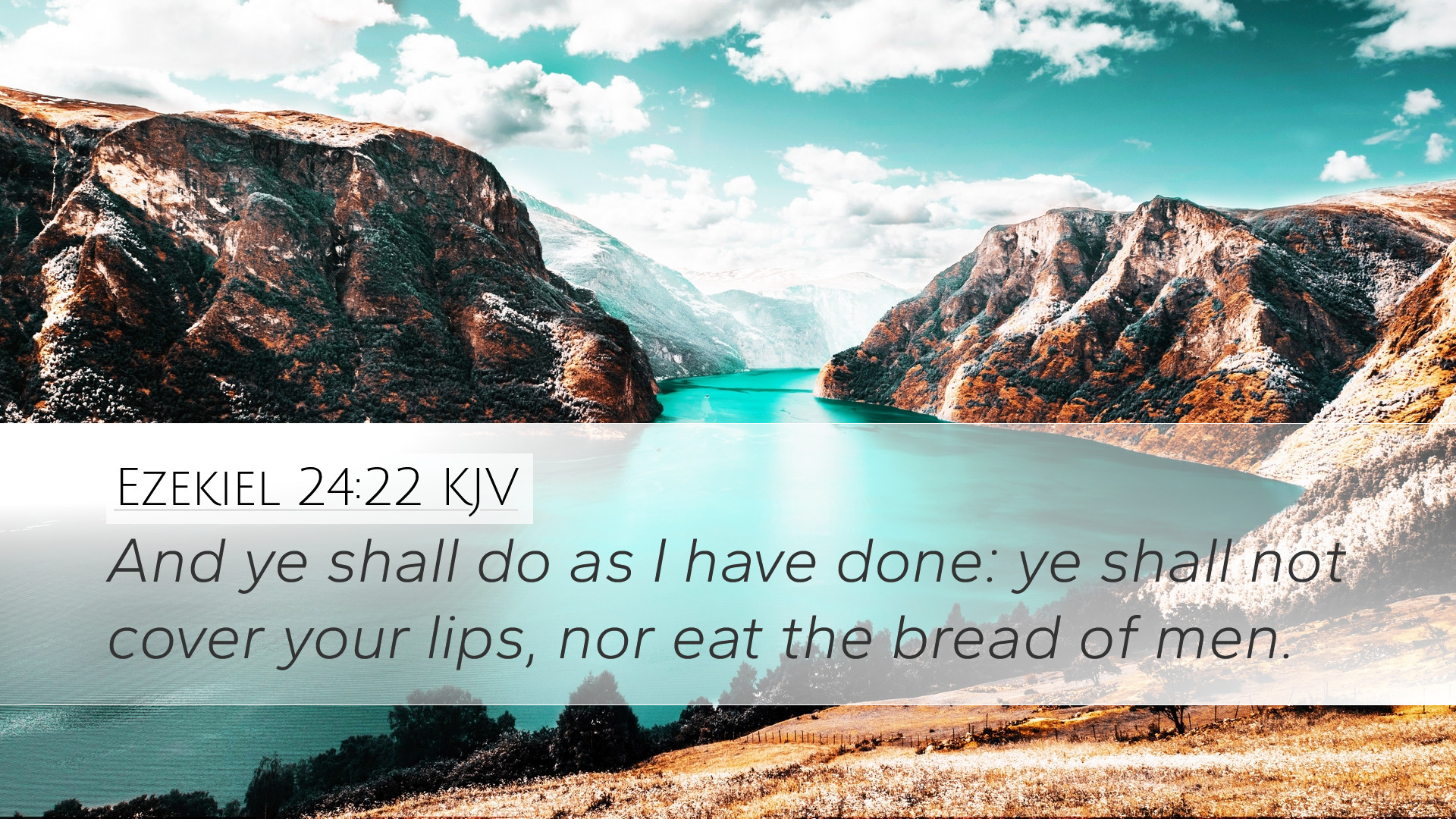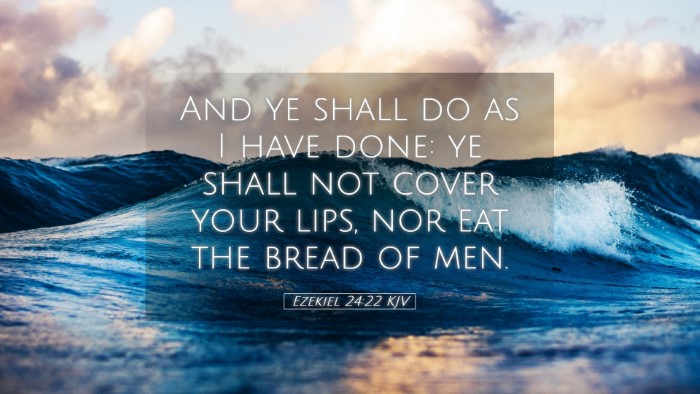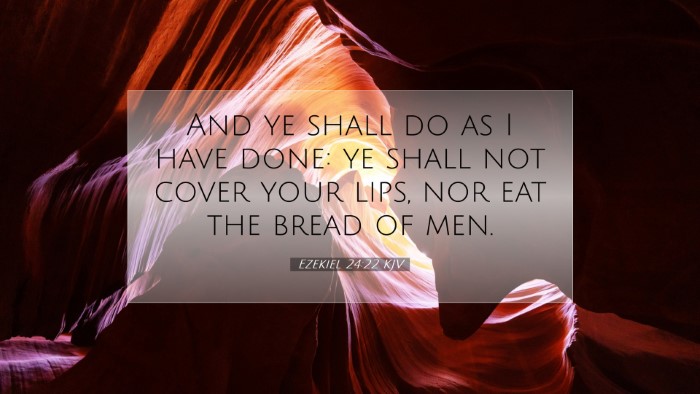Bible Commentary on Ezekiel 24:22
Bible Verse: Ezekiel 24:22 (ESV) - "And you shall do as I have done; you shall not cover your lips, nor eat the bread of mourners."
Introduction
This verse from the book of Ezekiel encapsulates a profound message of obedience and the prophetic symbolism that defines much of the prophetic literature in the Bible. Here, Ezekiel is commanded to embody the message of mourning and loss in a way that is instructive for Israel. The reflections of esteemed commentators such as Matthew Henry, Albert Barnes, and Adam Clarke provide valuable insights into its implications both for the contemporary reader and for the historical context of the prophet’s ministry.
Contextual Background
Ezekiel’s prophetic ministry occurs during a time of great tumult for Israel, marked by exile and impending judgment. The city of Jerusalem is on the brink of destruction, and the people are grappling with the reality of their sin and the consequences it brings. In this particular chapter, the Lord speaks through Ezekiel, using vivid imagery and symbolic acts to convey divine messages to His people.
Divine Judgment
The broader context of Ezekiel 24 speaks to God’s judgment upon Jerusalem. The prophet is commanded to act out the news of the fall of the city, conveying the severity of the situation. Matthew Henry notes that this command reflects God's deep sorrow over His people's rebellion and the inevitable suffering that follows. The command not to mourn externally—by covering lips or partaking in mourning bread—serves as a stark reminder of the seriousness of their spiritual state.
Analysis of the Command
In Ezekiel 24:22, God instructs Ezekiel to abstain from the customary signs of mourning. This underscores several crucial points:
- The seriousness of the message: The prophet’s personal actions serve as a powerful reflection of God’s intent and the gravity of the situation. Albert Barnes emphasizes that this avoidance of mourning signifies the irreversible nature of the calamity that is to befall Jerusalem.
- Public Witness: Ezekiel’s behavior is a public witness to the nation of Israel. Adam Clarke observes that the prophet’s actions are not merely for personal grief but are intended to instruct the people on how serious their sin has been before God.
- The call to obedience: The imperative nature of God's command to Ezekiel points to the importance of obedience to divine direction in how God communicates His will. This calls leaders and individuals today to reflect on their own responses to God’s leading.
Thematic Insights
This verse leads to several important theological themes relevant to pastors, theologians, and students of the Word:
- Mourning and Hope: While mourning may be a natural response to loss, this scripture highlights that stark external expressions of grief can sometimes mask deeper spiritual truths. Henry suggests that authentic mourning should lead to repentance, rather than mere outward signs.
- Prophetic Significance: The life of Ezekiel serves as a living parable for Israel. As Barnes articulates, the absence of mourning represents the absence of hope for those who remain unrepentant.
- Judgment and Mercy: This passage reminds us that God’s judgment is always tempered with His mercy. Clarke reflects on the idea that the absence of mourning, while a sign of judgment, also points to a future promise of restoration for those who turn back to God.
Application for Today’s Believers
As contemporary readers, we must explore the implications of Ezekiel 24:22 for our lives:
- Self-Examination: Believers are encouraged to regularly examine their lives in light of God’s commands, recognizing that external appearances can often conceal internal realities.
- Faithfulness in Hardship: Just as Ezekiel demonstrated unwavering commitment even in the face of impending disaster, modern believers are called to trust in God’s righteousness, even when circumstances seem dire.
- Role of Leaders: Pastors and church leaders should take heed from Ezekiel’s example, as leadership entails demonstrating the seriousness of sin while still holding out the hope of reconciliation with God.
Conclusion
Ezekiel 24:22 serves as a vital reminder of the balance between judgment and mercy, mourning and hope. Through the insights of notable commentators like Matthew Henry, Albert Barnes, and Adam Clarke, we glean not only the historical significance of Ezekiel's actions but also principles that guide our present faith journey. The command to abstain from mourning highlights the severity of the prophetic message and warns contemporary believers of the importance of genuine obedience to the word of God.


